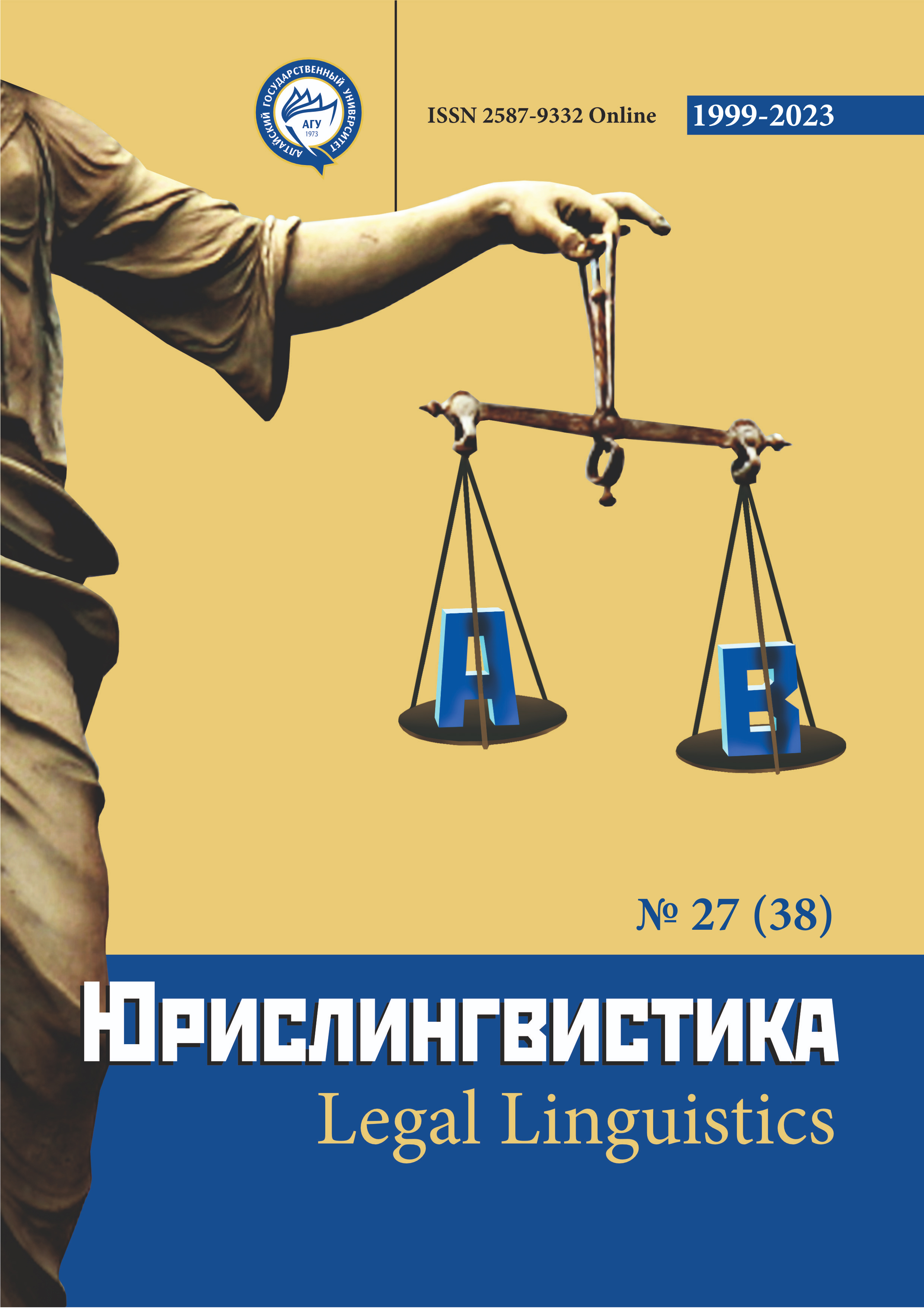Independent Anti-Corruption Expertise in the System of Russian Law
УДК 342 ББК 67.400
Abstract
The research covers a comprehensive analysis of the institute of independent anti-corruption expertise in the system of Russian law. The relevance of the topic is determined by the need to improve the forms of participation of citizens in the law-making activities of public authorities in order to prevent corruption. Anti–corruption expertise is one of the preventive mechanisms enshrined in the legislation of the Russian Federation to curb corruption and carried out into regulatory legal acts of state and local government bodies and their projects. An independent examination is carried out by citizens and legal entities accredited for this purpose by the Ministry of Justice of the Russian Federation, on their own initiative and at their own expense. The article analyzes regulatory legal acts (federal laws and by-laws of the President of the Russian Federation, the Government of the Russian Federation, federal ministries), which regulate the activities of independent experts authorized to conduct an examination of regulatory legal acts and draft regulatory legal acts on corruption. The study has singled out the problems that independent experts face when conducting an anti-corruption examination, identifying corruption-causing factors, preparing an opinion on the results of an independent anti-corruption examination, when interacting with public authorities in case of divergence of opinions on the presence of corruption-causing factors, and has proposed ways to solve them. First of all, the emphasis is put on the development of the conceptual apparatus, the methodology of anti-corruption expertise, which allows proficient and prompt identification of corruption-causing factors in regulations and their projects, as well as legislative control of situations are often encountered in practice and causing ambiguity.
Downloads
Metrics
References
Акчина А. Н., Евдокимов К. Н., Земцова Е. С. Актуальные вопросы проведения органами прокуратуры антикоррупционной экспертизы муниципальных нормативных правовых актов / Юридическая наука: история и современность. – 2017. – № 4. – С. 155-158.
Ананских И. А., Труфанов А. Ю. Об антикоррупционной экспертизе нормативных правовых актов и антикоррупционном мониторинге в сфере физической культуры и спорта / Мир политики и социологии. – 2013. – № 11. – С. 123-130.
Долотов Р. О., Крылова Д. В. Перспективы повышения эффективности института независимой антикоррупционной экспертизы / Журнал российского права. - 2019. - № 10. - С. 163-173.
Макаров А. В. Коррупция: опыт успешной борьбы Китая и реальность современной России / Государственная власть и местное самоуправление. – 2012. – № 3. – С. 13-21.
Казанцева О. Л. Независимая антикоррупционная экспертиза: оправдались ли ожидания? / Евразийская адвокатура. - 2015. - № 1. - С. 51-53.
Кудашкин А. В. Антикоррупционная экспертиза: теория и практика. Научно-практическое пособие. М., 2012.
Матковский С. В. Правовая природа антикоррупционной экспертизы / Российский следователь. – 2008. – № 24. – С. 27-30.
Ноздрачев А. Ф. Коррупция как правовая проблема в вопросах и ответах / Адвокат. – 2007. – № 10. – С. 34-49.
Рафалюк Е. Е., Власова Н. В. Юридическая наука в поиске правовых механизмов противодействия коррупции / Журнал российского права. – 2012. – № 7. – С. 43-68.
Хабибулин А. Г. Коррупция как угроза национальной безопасности: методология, проблемы и пути их
решения / Журнал российского права. – 2007. – № 2. – С. 45-50.
Copyright (c) 2023 Олеся Казанцева

This work is licensed under a Creative Commons Attribution 4.0 International License.
The authors, which are published in this journal, agree to the following conditions:
1. Authors retain the copyright to the work and transfer to the journal the right of the first publication along with the work, at the same time licensing it under the terms of the Creative Commons Attribution License, which allows others to distribute this work with the obligatory indication of the authorship of this work and a link to the original publication in this journal .
2. The authors retain the right to enter into separate, additional contractual agreements for the non-exclusive distribution of the version of the work published by this journal (for example, to place it in the university depository or to publish it in a book), with reference to the original publication in this journal.
3. Authors are allowed to post their work on the Internet (for example, in a university repository or on their personal website) before and during the review process of this journal, as this may lead to a productive discussion, as well as more links to this published work (See The Effect of Open Access).











